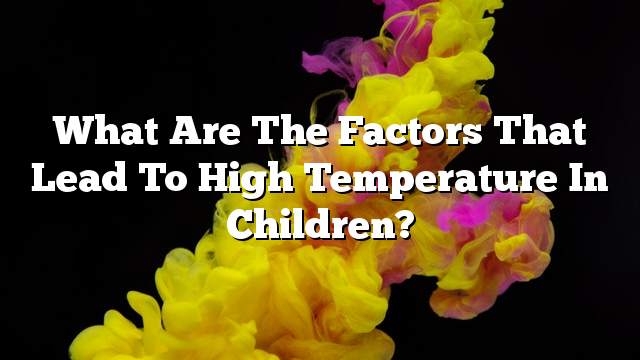High temperature in children
The high temperature of the child is important to predict the condition of the child, which must be dealt with quickly and seriously, especially in newborns, for fear of causing serious complications affecting the brain, and to avoid exposure to the child to suffer convulsions, the body temperature is normal 37 degrees, When they reach 39.5 degrees high they are very high and should be lowered and returned to normal as soon as possible.
Causes of high temperature of the child
- Colds and flu.
- Sore throat and inflammation of the tonsils.
- Inflammation of the ears.
- Exposure to intestinal influenza.
- Viral diseases such as smallpox and measles.
- Infection of the respiratory system of the child with folk diphtheria and pneumonia.
- Elevated temperature as a side-view for some medications.
- Routine vaccinations for children, which may raise the temperature of some of them.
- Infection with a disease of the immune system.
- Hormonal imbalance in the child, such as increased thyroid hormone secretion.
- Cancer.
Tips for dealing with high fever
- Use the appropriate heat sink.
- Cold compresses the child’s front, they reduce heat, or use compresses sold in pharmacies on the abdomen, thighs and front, because these areas are the most influential in the heat and reduce.
- Make a lukewarm water bath for the child, and if the child starts to tremble, take it out of it. Also, do not use an ice bath or rub his body with alcohol, because this causes a rise in temperature again.
- Place the child in a temperate and suitable temperature.
- Remove the baby’s clothing and leave a light layer on top of it with a light cover.
- Give the child plenty of fluids, especially water to prevent his being exposed to dehydration.
When to see your doctor
- If the child is less than two months old and has a fever of up to 38 degrees, because his / her immune system is incomplete and does not do so, consult your doctor immediately.
- If the child is between three and six months old and warmer than 38.3 degrees.
- If the child is older than six months, the temperature is higher than 39.4 degrees, even if there are no other symptoms associated with this increase.
- If the child is more than two years old, the fever lasts for more than a day or if the increase is accompanied by other symptoms such as the child’s refusal to eat, sore throat, ears, diarrhea, severe headache, and signs of illness.
